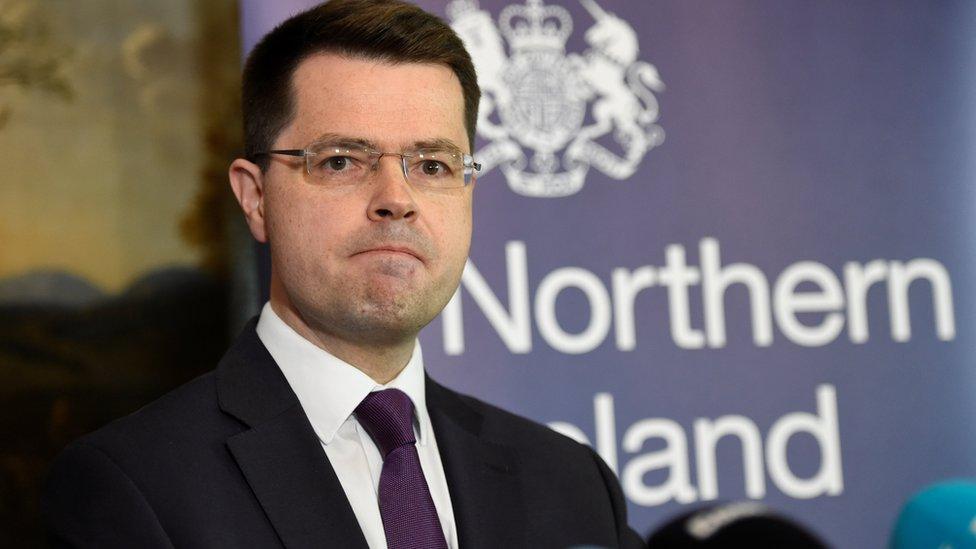Brexit: Simon Coveney says UK should 'reflect' on its options
- Published
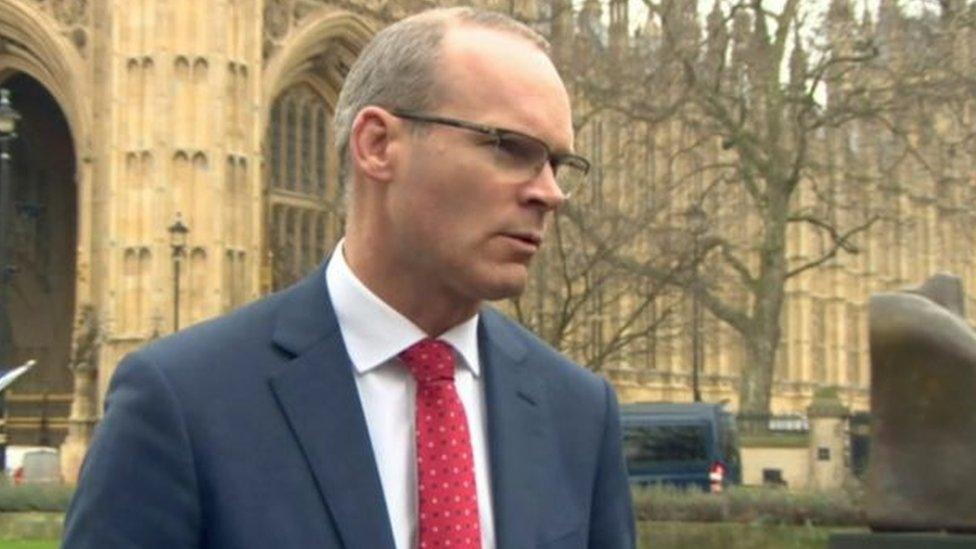
Simon Coveney proposed a new mechanism to improve co-operation between London and Dublin
Irish Foreign Affairs Minister Simon Coveney has said the UK should seek the "closest possible" alignment with the European Union's customs rules after Brexit.
Mr Coveney was speaking at Chatham House in London on Wednesday.
He said the British government should "reflect carefully" on which Brexit options would secure prosperity.
Mr Coveney also proposed a new mechanism to improve co-operation between London and Dublin.
"We should examine seriously the possibility of bringing both governments together annually, in London or Dublin in alternate years, to discuss issues of mutual co-operation or concern," he said.
"This annual summit of all senior ministers would allow for co-operation across a broad range of issues of shared interest - everything from energy to the environment, and from transport to technology and employment.
"It could also be prepared for in the preceding weeks and months by teams of officials from the relevant departments or ministries."
In a separate development on Wednesday, the Police Service of Northern Ireland (PSNI) chief constable said the "biggest practical vulnerability" regarding Brexit is the potential removal of the European Arrest Warrant (EAW).
The EAW operates EU-wide and replaced separate extradition arrangements between the EU member states.
George Hamilton was appearing before a House of Lords committee on Wednesday.
The Lords committee met at Stormont.
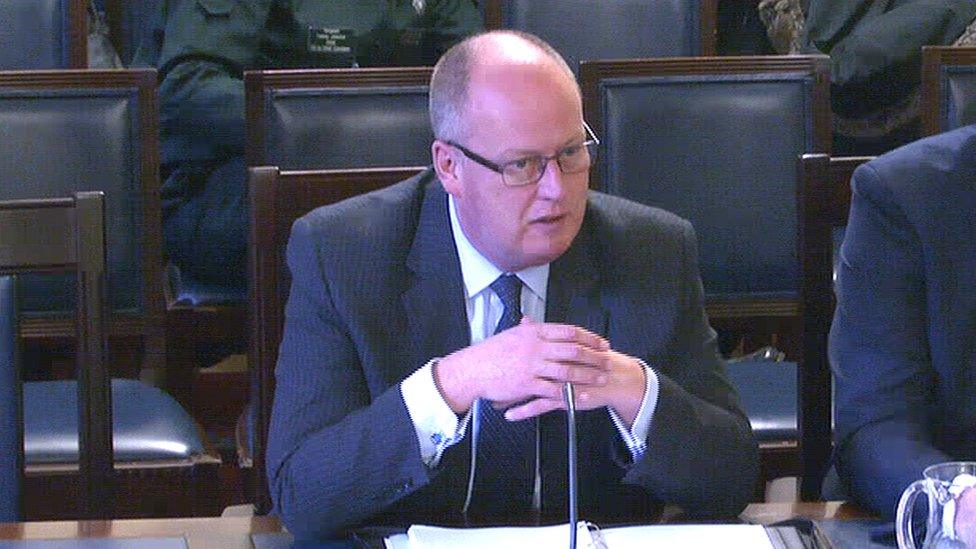
George Hamilton was appearing before a House of Lords committee
Mr Hamilton said the PSNI needs an alternative arrangement with the Republic of Ireland and other countries where there are no parallel or pre-existing extradition arrangements.
It is part of an inquiry into future British Irish relations after Brexit.
"Probably the biggest practical vulnerability for us is the removal of the European Arrest Warrant," Mr Hamilton said
"From our perspective, we need an alternative arrangement with the Republic of Ireland and, actually, with other countries where there aren't pre-existing or parallel extradition arrangements."
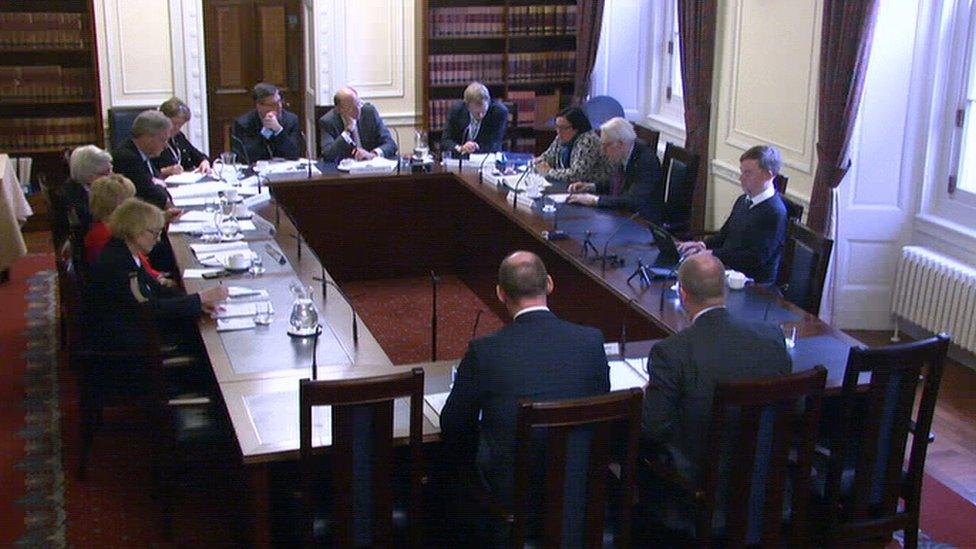
The committee has been meeting at Stormont on Wednesday
The chief constable said he did not feel "we are in a better place" in regards to what will happen post-Brexit than when he provided a written submission to the committee 18 months ago.
"We do think it is legitimate for the police to identify operational consequences and therefore mechanisms that need to be put in place to replace the current EU-sponsored arrangements," he said.
"We have been treading carefully to not appear and, in effect not to move into, what is a political debate, but we also feel a certain concern and lack of assurance, actually, that we're saying the same things now that we said 18 months ago."
- Published5 December 2014
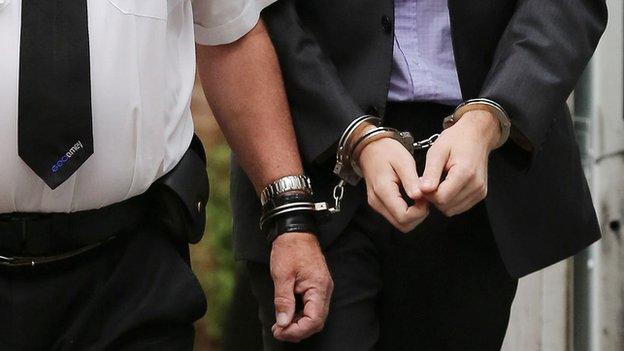
- Published8 January 2018
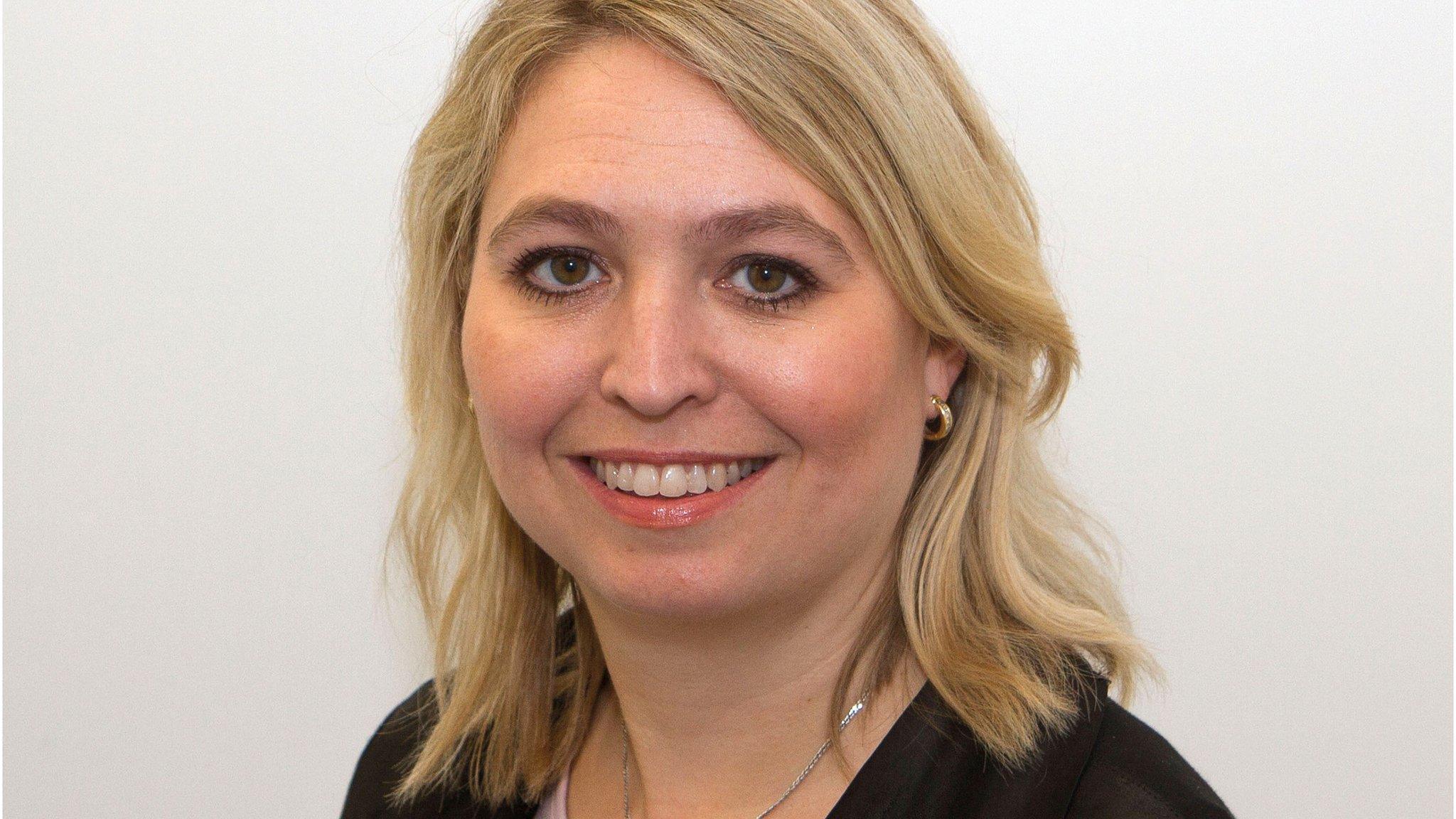
- Published8 January 2018
